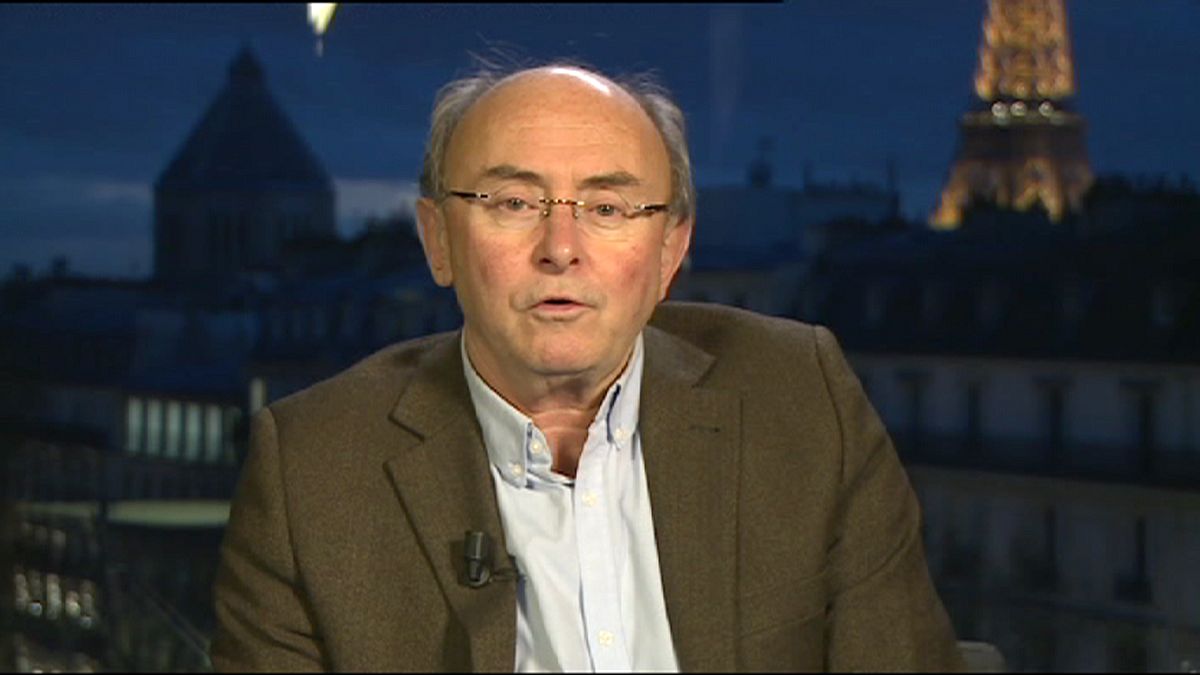How will the attack on Charlie Hebdo impact on the French press? That’s a question which euronews Sophie Desjardin put to Dominique Wolton who is a
How will the attack on Charlie Hebdo impact on the French press? That’s a question which euronews Sophie Desjardin put to Dominique Wolton who is a director of research at CNRS – the National Centre for Scientific Research.
Dominique Wolton: “ I think it requires us to take seriously anything that was considered on the fringe of free speech that is to say what was the most radical press, most humourous, and that which was regarded as marginal.
‘And as often in democracy you only have to look and see how many times Charlie Hebdo was lampooned in the past for the stance it took, for its cartoons etc. What we see is a press which is considered almost excessive but it’s ultimately at the heart of democracy. This is very important because I believe there is no freedom of speech, no freedom of information, no freedom of the press if the press is regarded as too bold, of poor taste. When all is said and done it carries the most extreme values of the the ability to criticize.”
euronews: “Intellectuals, journalists murdered for their ideas – it is not new to the world but it was unimaginable in France. Will there be a before and an after January 7?”
Dominique Wolton: “Yes there will be a before and an after January 7. The support of the people is strong because of the newspaper and those that were murdered, five of whom were well known. That has an impact. There is a thread through the cultural and political history of France.
‘And I add that at the time of this tragedy we could equally put the spotlight on other human tragedies such as the thousands of immigrants who arrive on our European shores many of whom drown. I think it’s necessary to make a link between the freedom of information as defined at the heart of this discussion and how Europe is acting within its fundamental values.”
euronews: “Do you think it will change anything for the press?”
Dominique Wolton: “From the point of view of the press it questions the ability of the press to follow, too often, on behalf of the right of information, ideas that can be racist and ideas that can be full of hate towards another person. It’s not only about Islam its about the other person. Can we respect that person or do we consider them a danger. And if we consider a danger we make amalgams.
‘If we could do a favour to the US who expressed their solidarity towards us we could say to them, ‘we don’t have any lessons to give you but we will try and not reproduce the kind of anti-Islam, anti-Muslim hysteria that occured after the 9/11 attack’.”
euronews: “We have seen a remarkable reaction. on the street, on social networks, everywhere, what does this tell us about French society?”
Dominique Wolton: “ It is perhaps a positive lesson. We are not saying that the French and Europeans are ready to succumb to all forms of extremism and no longer believe in anything. This is not true and France on this occasion can realise once again that one of its greatest strengths is to be a multicultural country with many religions and cultures coexisting and that even if social integration is no longer the same as it was and the coexistence of religions more difficult than 50 years ago there is a political maturity. In any case it has to be emphasised now for if it goes wrong in two or three months we will have to be reminded of it then.”
euronews: “Do you think there will political exploitation of this attack and what are the potential risks?”
Dominique Wolton: “I don’t think so. If there is an attempt at political exploitation then it will come back on those who do it. That’s because with the minutes silence on Saturday and the big demonstration on Sunday it will be a time of heightened verbal hysteria, the words will want to say something of profound emotion.”
